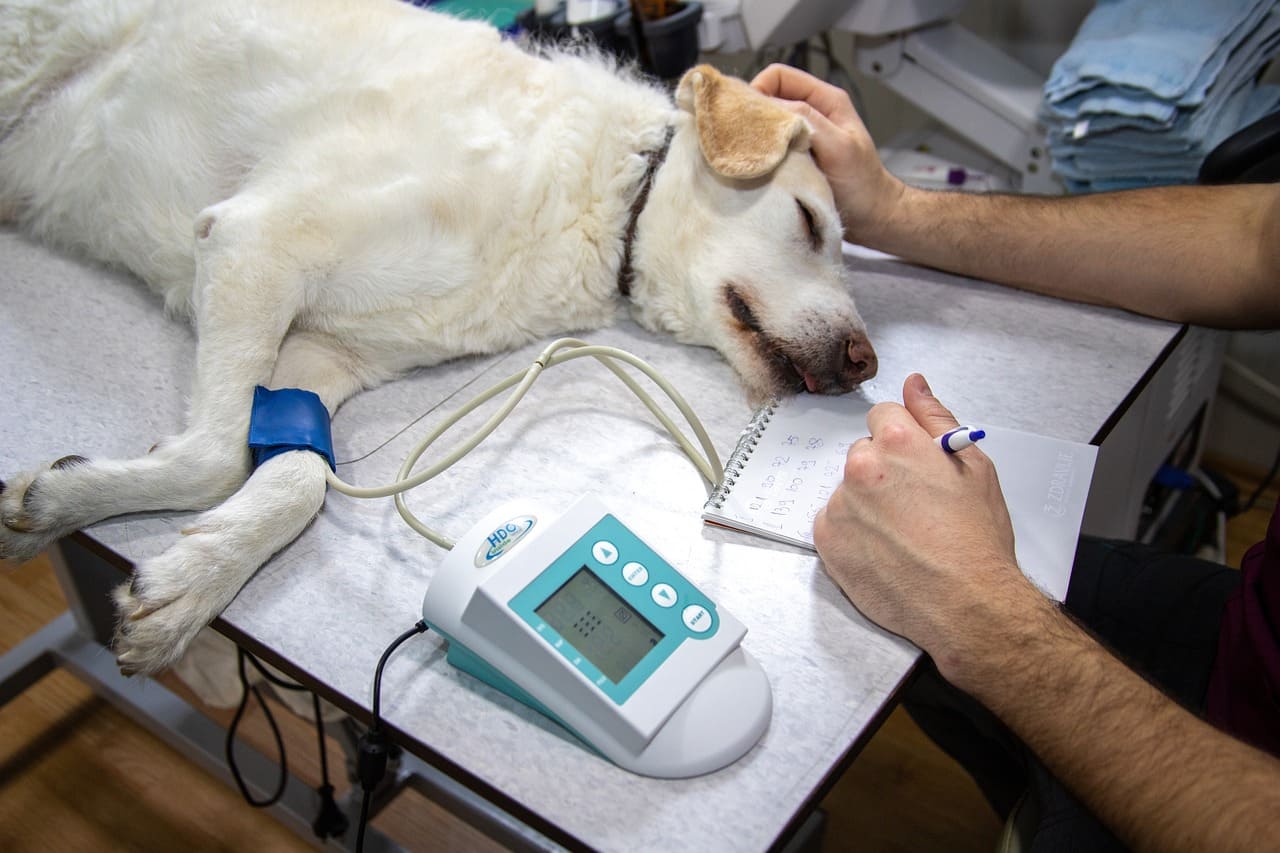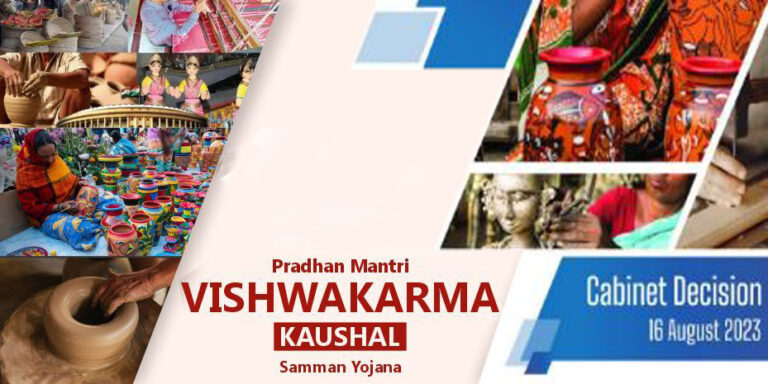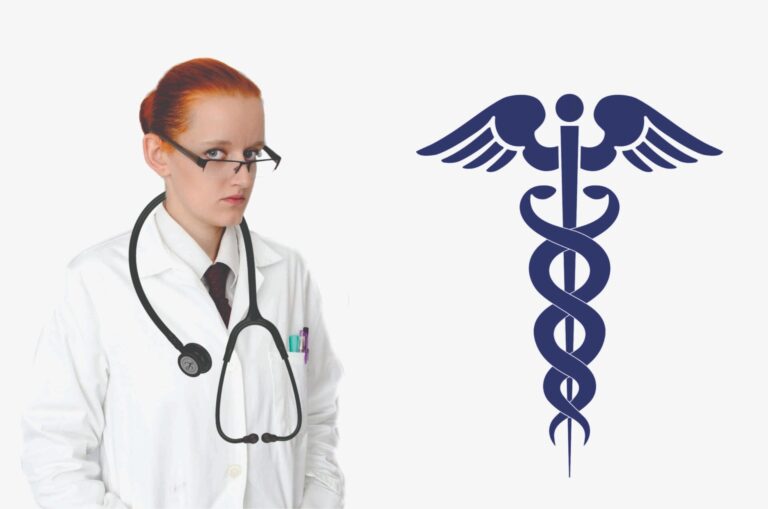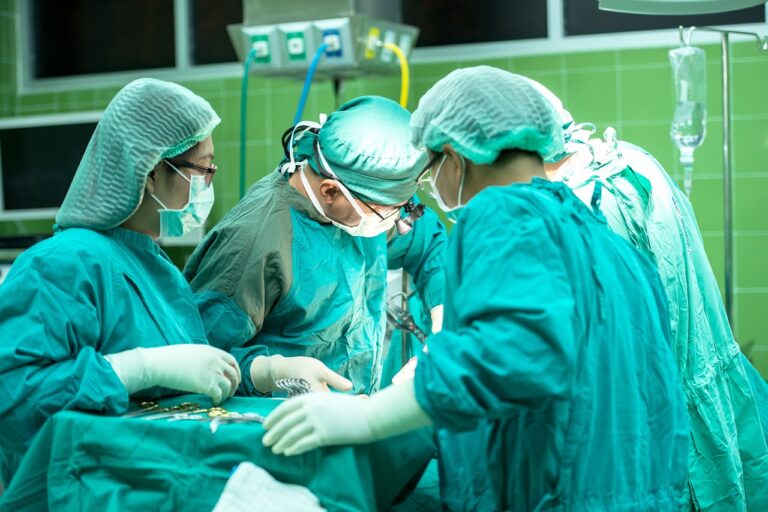Career as Veterinary Professional
Table of Contents
ToggleChoosing Career as veterinary professional : In-Depth Exploration
1. Introduction
A veterinarian, often referred to as a veterinary professional, plays a critical role in the health and welfare of animals. These skilled professionals diagnose, treat, and research medical conditions and diseases of pets, livestock, and other animals. The importance of veterinarians extends beyond animal care, as they also contribute to public health, food safety, and environmental protection. With the increasing awareness of animal welfare and the growth of the pet industry, the demand for qualified veterinary professionals continues to rise globally and in India.
2. Educational Qualifications
2.1. Global Perspective
To become a veterinary professional on a global scale, aspiring veterinarians must navigate a rigorous educational pathway.
- Pre-Veterinary Education: High school students aiming to enter veterinary medicine should focus on science subjects such as Biology, Chemistry, and Physics. This foundational knowledge is crucial for understanding the complex biological systems they will study in-depth later.
- Undergraduate Degree: Most veterinary schools require an undergraduate degree before admission into a veterinary program. Degrees in biological sciences, animal science, or related fields are highly preferred. This stage involves taking prerequisite courses that cover essential topics like anatomy, physiology, and microbiology.
- Veterinary School: The primary educational qualification for a veterinary professional is obtaining a Doctor of Veterinary Medicine (DVM) or its equivalent (e.g., BVSc, BVMS). Veterinary schools typically offer a four-year program that combines classroom instruction, laboratory work, and clinical experience. Accreditation by regional veterinary councils (such as the American Veterinary Medical Association (AVMA) in the USA or the Royal College of Veterinary Surgeons (RCVS) in the UK) ensures that the education meets the required standards.
- Postgraduate Education (Optional): Some veterinary professionals choose to further their education by pursuing a master’s degree (e.g., MSc in Veterinary Science) or a PhD in Veterinary Science. These advanced degrees often focus on research, academia, or specialized fields within veterinary medicine.
2.2. India
The pathway to becoming a veterinary professional in India follows a structured educational route.
- Pre-Veterinary Education: Students need to complete their higher secondary education (10+2) with a focus on science subjects—Physics, Chemistry, and Biology.
- Veterinary School: Aspiring veterinarians must enroll in a Bachelor of Veterinary Science and Animal Husbandry (B.V.Sc & AH) program. This five-year course is the foundational qualification for veterinary professionals in India. The program includes theoretical knowledge, practical training, and internships. Institutions offering this degree must be accredited by the Veterinary Council of India (VCI).
- Postgraduate Education: Veterinary professionals seeking advanced knowledge can pursue a Master of Veterinary Science (M.V.Sc) or a PhD in Veterinary Science. These programs provide opportunities to specialize in specific areas of veterinary medicine, such as surgery, pathology, or animal reproduction.
3. Certifications
3.1. Global Perspective
Certifications are crucial for veterinary professionals to practice legally and specialize in various fields.
- National and Regional Licensure Exams: Veterinary graduates must pass licensure exams to practice. For instance, in the USA, the North American Veterinary Licensing Examination (NAVLE) is mandatory. Similarly, Canada requires the National Board Examination (NBE).
- Board Certifications: After obtaining their DVM, veterinary professionals can pursue board certifications in specializations like surgery, internal medicine, or oncology. These certifications, offered by institutions such as the American College of Veterinary Surgeons, involve rigorous additional training and examinations.
3.2. India
In India, certifications are essential for veterinary professionals to practice and excel.
- Registration with the Veterinary Council of India (VCI): Graduates must register with the VCI to obtain a license to practice. This registration ensures that they meet the national standards for veterinary practice.
- State Veterinary Council Registration: In addition to the VCI, veterinary professionals must register with their respective state veterinary councils to practice within that state.
- Specialized Certifications: Indian veterinary professionals can also pursue certifications from recognized institutes like the Indian Veterinary Research Institute (IVRI) to specialize in various fields within veterinary medicine.
4. Specializations
4.1. Global Specializations
Veterinary professionals can choose from a wide range of specializations to focus their careers.
- Clinical Practice: This includes small animal practice (pets like dogs and cats), large animal practice (livestock), and exotic animal practice (wildlife, zoo animals).
- Surgery: Veterinary surgeons specialize in performing surgeries ranging from routine spay and neuter procedures to complex orthopedic surgeries.
- Internal Medicine: Specializing in internal medicine allows veterinary professionals to diagnose and treat complex diseases affecting internal organs.
- Oncology: Veterinary oncologists specialize in the treatment of cancer in animals, offering advanced treatments like chemotherapy and radiation.
- Dermatology: Veterinary dermatologists focus on skin-related issues, including allergies, infections, and autoimmune diseases.
- Emergency and Critical Care: These specialists handle urgent and life-threatening conditions, providing critical care to stabilize and treat animals.
- Zoo and Wildlife Medicine: Veterinary professionals in this field work with wild and exotic animals, often in zoos, wildlife parks, or conservation projects.
- Research and Academia: Veterinarians can also pursue careers in research, contributing to the advancement of veterinary science, or in academia, teaching future veterinary professionals.
4.2. Indian Specializations
In India, veterinary professionals have various specializations to choose from, tailored to the country’s unique needs.
- Clinical Practice: Specializations include small animal practice (pets), large animal practice (livestock such as cattle and buffalo), and poultry and avian medicine.
- Surgery and Radiology: This specialization focuses on surgical procedures and diagnostic imaging techniques.
- Animal Reproduction: Veterinary professionals specializing in animal reproduction focus on breeding, fertility, and reproductive health.
- Veterinary Pathology: This field involves the study of animal diseases, including their causes, development, and effects.
- Veterinary Public Health: Professionals in this field work on preventing and controlling zoonotic diseases (diseases transmitted from animals to humans).
- Veterinary Parasitology: This specialization deals with the study and control of parasitic infections in animals.
- Veterinary Microbiology: Veterinary microbiologists study microorganisms that cause diseases in animals, contributing to the development of vaccines and treatments.
5. Career Opportunities
5.1. Global Perspective
Veterinary professionals have a wide array of career opportunities available globally. The roles and responsibilities can vary significantly depending on the chosen path, and each offers its own unique challenges and rewards.
- Private Veterinary Clinics: Many veterinary professionals work in private clinics, providing healthcare services to pets and companion animals. They perform routine check-ups, vaccinations, surgeries, and emergency care.
- Hospitals and Referral Centers: These facilities offer specialized care and advanced medical procedures. Veterinary professionals here often work in multidisciplinary teams, dealing with complex cases that require specialized knowledge and equipment.
- Research Institutions: Veterinary professionals can pursue careers in research, contributing to the advancement of veterinary science. This involves studying diseases, developing new treatments, and improving animal health and welfare.
- Pharmaceutical Industry: Veterinarians in this field work on the development and testing of new veterinary drugs and treatments. They ensure that these products are safe and effective for animal use.
- Government and Regulatory Agencies: Veterinary professionals play crucial roles in public health and food safety. They work with government agencies to monitor and control zoonotic diseases, oversee animal welfare regulations, and ensure the safety of the food supply.
- Wildlife Conservation Organizations: Veterinarians working with wildlife conservation groups focus on the health and preservation of wild animal populations. This can include fieldwork, rehabilitation of injured wildlife, and participating in conservation programs.
- Non-Governmental Organizations (NGOs): Various NGOs employ veterinary professionals to work on animal welfare projects, disaster relief, and community education programs about animal care and disease prevention.
5.2. India
In India, veterinary professionals have several career paths, each contributing to the country’s diverse and dynamic animal health sector.
- Government Veterinary Services: Many veterinarians work in government roles, providing veterinary services at the state or district level. They manage animal health programs, control infectious diseases, and work on improving livestock health and productivity.
- Private Veterinary Practice: Similar to global trends, private clinics in India offer veterinary services to pets and livestock. Veterinary professionals in private practice often build long-term relationships with their clients, providing comprehensive care.
- Animal Husbandry Departments: These departments work closely with farmers to enhance livestock production. Veterinary professionals provide guidance on animal breeding, nutrition, and disease management to improve livestock health and productivity.
- Research and Academic Institutions: Veterinarians in academia and research contribute to the education of future veterinary professionals and conduct important research to advance veterinary science in India.
- Dairy and Poultry Industries: The dairy and poultry sectors are significant in India, and veterinary professionals play a key role in ensuring the health and productivity of these animals. They work on disease prevention, health management, and improving production practices.
- Wildlife and Zoo Management: Veterinary professionals working in zoos and wildlife parks focus on the health and welfare of exotic and wild animals. They provide medical care, participate in conservation efforts, and conduct research on wildlife health.
- NGOs and Animal Welfare Organizations: Many NGOs in India focus on animal welfare, rescue, and rehabilitation. Veterinary professionals working with these organizations help manage animal shelters, conduct sterilization programs, and provide veterinary care to stray and abandoned animals.
6. Professional Development and Continuing Education
6.1. Global Perspective
For veterinary professionals, continuous learning is vital to stay updated with the latest advancements in veterinary medicine and to maintain their licensure.
- Continuing Education Requirements: Most countries require veterinary professionals to complete a certain number of continuing education (CE) hours to renew their licenses. These CE courses cover a range of topics, from new medical treatments to advances in surgical techniques.
- Workshops, Seminars, and Conferences: Attending industry events provides veterinary professionals with opportunities to learn from experts, network with peers, and stay informed about new developments in the field. Conferences often feature keynote speakers, hands-on workshops, and presentations on the latest research.
- Online Courses and Webinars: Online learning platforms offer flexibility for veterinary professionals to continue their education. Webinars and online courses cover various topics, allowing veterinarians to learn at their own pace and convenience.
- Membership in Professional Organizations: Joining professional organizations, such as the American Veterinary Medical Association (AVMA) or the World Small Animal Veterinary Association (WSAVA), provides access to valuable resources, including journals, online libraries, and professional development programs.
6.2. India
In India, professional development for veterinary professionals is equally important to ensure high standards of animal care and to keep up with advancements in veterinary science.
- Continuing Education Programs Organized by VCI: The Veterinary Council of India (VCI) organizes regular continuing education programs to help veterinarians stay updated with the latest developments in the field. These programs include workshops, seminars, and training sessions.
- National and International Veterinary Conferences: Indian veterinary professionals benefit from attending national and international conferences. These events provide platforms to learn about global best practices, new technologies, and emerging trends in veterinary medicine.
- Specialized Training Workshops: Various institutes and organizations conduct specialized training workshops on topics like advanced surgical techniques, diagnostic imaging, and veterinary pharmacology. These workshops help veterinarians enhance their skills and knowledge.
- Online Courses Offered by Indian and International Institutions: Online education platforms, both Indian and international, offer courses and webinars tailored to veterinary professionals. These online resources are valuable for continuous learning and professional development.
7. Challenges and Considerations
Being a veterinary professional comes with its own set of challenges and considerations, which are crucial to understand for anyone aspiring to join this field.
- Ethical and Emotional Challenges: Veterinarians often face difficult ethical decisions, such as when to euthanize a suffering animal. The emotional toll of dealing with sick and injured animals, and sometimes their grieving owners, can be significant. Managing compassion fatigue is an important aspect of maintaining mental health in this profession.
- Financial Aspects: The cost of veterinary education can be high, and starting salaries may not always match the investment in education. However, as veterinary professionals gain experience and potentially specialize, their earning potential can increase significantly.
- Work-Life Balance: Veterinary professionals often work long hours, including nights, weekends, and holidays. Emergency cases and the demands of running a practice can make maintaining a work-life balance challenging. Time management and setting boundaries are essential skills.
- Evolving Trends in Veterinary Medicine: The field of veterinary medicine is constantly evolving, with new technologies, treatments, and methodologies emerging regularly. Staying current with these trends, such as telemedicine, integrative therapies, and advanced diagnostic tools, is crucial for veterinary professionals to provide the best possible care.
Renowned Veterinary Educational Institutes
India
- ICAR-National Dairy Research Institute, Karnal, Haryana – one of the premier Institutes in dairy sector
- Indian Veterinary Research Institute (IVRI), Izatnagar, Uttar Pradesh. – Notable for advanced research and postgraduate education in veterinary science.
- Tamil Nadu Veterinary and Animal Sciences University (TANUVAS), Chennai, Tamil Nadu. – Known for comprehensive undergraduate and postgraduate veterinary programs.
- Siksha ‘O’ Anusandhan University – [SOA], Bhubaneswar, Orissa.
Abroad
1. University of California, Davis – School of Veterinary Medicine, Davis, California, USA. – Ranked among the top veterinary schools globally, renowned for research and clinical training.
2. Royal Veterinary College (RVC), University of London, London, UK. – Prestigious for its cutting-edge research and veterinary education programs.
3. University of Sydney – Faculty of Veterinary Science, Sydney, Australia. – Known for its robust veterinary science curriculum and research opportunities.
Veterinary Certification Bodies
India
1. Veterinary Council of India (VCI), – The regulatory body for veterinary education and practice in India, responsible for accrediting veterinary schools and maintaining professional standards.
Abroad
2. American Veterinary Medical Association (AVMA), USA, – Provides accreditation for veterinary schools in the United States and certifies veterinary professionals.
3. Royal College of Veterinary Surgeons (RCVS), UK – The professional body responsible for regulating the veterinary profession in the United Kingdom.
Veterinary Forums
India
1. Indian Veterinary Association (IVA), – A professional organization that represents veterinarians in India, offering a platform for networking, professional development, and advocacy.
Abroad
2. Veterinary Information Network (VIN), – An international online community of veterinarians that offers a forum for professional discussion, continuing education, and resources.
3. World Small Animal Veterinary Association (WSAVA), – A global association that provides a platform for small animal veterinarians to collaborate, share knowledge, and advance veterinary care standards.
8. Conclusion
Choosing a career as a veterinary professional involves a commitment to lifelong learning, compassion, and a dedication to animal health and welfare. This profession offers diverse career opportunities, from clinical practice and research to working with wildlife and contributing to public health. Despite the challenges, the rewards of improving and saving the lives of animals make it a fulfilling career choice. For those passionate about animals and science, becoming a veterinary professional can be a highly rewarding and impactful career path both globally and in India.
While a career as a veterinary professional involves working with animals, alternative professions such as being a doctor, dentist, or physician focus on human health. Each of these careers requires extensive education and training, but they offer the opportunity to make a meaningful impact on people’s lives. Whether diagnosing and treating human diseases, maintaining oral health, or providing comprehensive medical care, these professions are highly respected and rewarding career paths. Aspiring healthcare professionals should consider their interests, skills, and passion for patient care when choosing the right career path for them.
Profession as a Doctor
Choosing a career as a doctor is a highly respected alternative to becoming a veterinary professional. Doctors diagnose and treat illnesses, injuries, and other health conditions in humans. The educational pathway involves completing a Bachelor’s degree, followed by medical school, and then specialized training in fields such as surgery, pediatrics, or internal medicine. Doctors have the opportunity to work in various settings, including hospitals, clinics, and private practices. The profession demands rigorous training, a commitment to lifelong learning, and a deep empathy for patients, but it offers the reward of making a significant impact on human health and well-being.
Profession as a Dentist
A career in dentistry focuses on oral health, including the prevention, diagnosis, and treatment of dental and oral diseases. Dentists complete an undergraduate degree followed by dental school, earning a Doctor of Dental Surgery (DDS) or Doctor of Dental Medicine (DMD) degree. Dentists work in private practices, clinics, and hospitals, performing procedures such as fillings, extractions, and the installation of dental implants. The field also offers specialties like orthodontics and periodontics. Dentistry is a profession that combines medical knowledge with technical skills, providing a rewarding career for those interested in helping people maintain healthy teeth and gums.
Profession as a Physician
Physicians, often referred to as general practitioners or family doctors, play a crucial role in healthcare by providing comprehensive medical care to patients of all ages. The path to becoming a physician includes earning a medical degree, followed by residency training in general practice. Physicians conduct physical exams, diagnose illnesses, prescribe treatments, and advise on preventive healthcare. They often form long-term relationships with their patients and are the first point of contact for medical issues. This profession offers a stable and fulfilling career with the opportunity to work in diverse healthcare settings and make a significant difference in patients’ lives.
Career in Dentistry
Dentistry offers a unique blend of healthcare and artistry, focusing on the diagnosis, prevention, and treatment of oral diseases. Dentists perform a variety of procedures to maintain and restore oral health, such as cleaning, filling cavities, and performing root canals. After obtaining a dental degree, dentists can choose to specialize in fields like orthodontics, pediatric dentistry, or oral surgery. The profession requires precision and attention to detail, as well as excellent communication skills to educate patients on maintaining good oral hygiene. A career in dentistry provides the satisfaction of improving patients’ smiles and overall oral health, making it a rewarding choice for those interested in healthcare.






